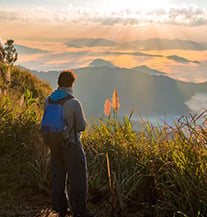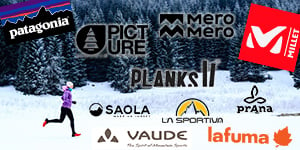Sign in
Contact
-
MenuBack
-
Our Sports
-
-
-
-
Hiking equipment
- Headlamp
- Hiking accessories
- Hiking compass
- Hiking poles
- Pole accessories
- Sunglasses
- Trekking binoculars
-
Hiking equipment
-
-
Hiking bag
- Baby carrier accessories
- Baby carrier bag
- Children's backpacks
- Hiking backpack
- Isothermal bag
- Rain cover
- Waterproof bags
-
Hiking bag
-
-
-
-
Hiking shoes
- Flip-flops
- Hiking boots
- Hiking sandals
- Hiking shoe accessories
- Insoles for hiking boots
- Low hiking shoes
-
Hiking shoes
-
-
Hiking shoe accessories
- Cleaning products
- Laces
- Waterproofing
-
Hiking shoe accessories
-
-
-
- Hiking clothes
-
- Hiking caps
- Hiking hats
- Hiking socks
- Men's hiking jackets
- Men's hiking pants
- Men's hiking T-shirts
- Men's Softshell Jacket
- Women's hiking jackets
- Women's hiking pants
- Women's hiking T-shirts
- Women's Softshell Jacket
-
- Men's hiking shorts
- Women's hiking shorts
-
-
-
-
-
-
Mountaineering equipment
- Ice screws
- Mountaineering accessories
- Mountaineering backpack
- Mountaineering crampons
- Mountaineering harness
- Mountaineering ice axe
- Mountaineering rope
-
Mountaineering equipment
-
-
-
-
Mountaineering shoes
- Approach Shoes
- Mountain boots
- Mountaineering boots
-
Mountaineering shoes
-
-
-
- Mountaineering Clothing
-
- Climbing gloves
- Men's fleeces
- Men's ski pants
- Men's Softshell Jacket
- Women's fleeces
- Women's ski pants
- Women's Softshell Jacket
-
- Men's mountaineering jacket
- Women's mountaineering jacket
-
-
-
-
-
-
Climbing belay
- Climbing anchors
- Climbing belay goggles
- Climbing carabiner
- Climbing pulleys
- Climbing quickdraws
- Climbing ropes
- Climbing straps
- Climbing wedges
- Rope bags
-
Climbing belay
-
-
-
-
Climbing shoes
- Lace-up climbing slipper
- Velcro climbing shoes
-
Climbing shoes
-
-
Climbing equipment
- Climbing accessories
- Climbing backpack
- Climbing bivouac
- Climbing harness
- Climbing helmets
- Crash Pad
- Magnesia bag
- Magnesia for climbing
-
Climbing equipment
-
-
-
- Climbing clothes
-
- Climbing gloves
- Men's climbing pants
- Men's climbing T-shirts
- Men's Softshell Jacket
- Women's climbing pants
- Women's climbing T-shirts
- Women's Softshell Jacket
-
- Men's climbing shorts
- Women's climbing shorts
-
-
-
-
-
-
Tents
- 1-person tent
- 2-person tent
- 3-person tent
- Family Tent Camping
- Floor mats
- Mosquito net
- Shipping tent
- Trekking tent
- Ultra-light tent
-
Tents
-
-
-
-
Camping equipment
- Camping accessories
- Camping chairs
- Camping lamp
- Camping table
- Camping towels
- Solar shower
-
Camping equipment
-
-
Survival accessories
- Compass
- First aid kit
- Survival blankets
- Survival kit
- Water purifier
-
Survival accessories
-
-
-
-
Camping kitchen
- Camping cooler
- Camping dishes
- Camping stove
- Cutlery
- Gas cartridges
- Gourds
- Kettle
- Nutrition
- Popote camping
- Stove accessories
-
Camping kitchen
-
-
-
-
Camping bedding
- Camping hammock
- Camping mattresses
- Camping pillows
- Camping sheets
- Compression bag
- Sleeping bag
-
Camping bedding
-
-
-
-
-
-
Survival gear
- Bushcraft tools
- Machetes
- Solar chargers
- Survival knives
-
Survival gear
-
-
-
-
Survival accessories
- Compass
- First aid kit
- Survival blankets
- Survival kit
- Water purifier
-
Survival accessories
-
-
-
- Nutrition
-
-
-
-
-
-
Trail equipment
- Hydration accessories
- Hydration vest
- Hygiene
- Pharmacy
- Soft Flask
- Trail bag
- Trail belts
- Trail headlamp
- Trail stick
- Water Pouch
-
Trail equipment
-
-
-
- Trail shoe
-
- Sandal recovery
- Shoe sole
- Trail crampons
- Trail shoes
-
-
-
- Trail clothing
-
- Men's tank tops
- Men's trail jackets
- Men's trail shorts
- Men's trail T-shirts
- Men's trail tights
- Men's windproof jackets
- Trail caps
- Trail socks
- Women's shorts
- Women's tank tops
- Women's trail jackets
- Women's trail T-shirts
- Women's trail tights
- Women's windproof jackets
-
-
-
-
-
-
Running gear
- Energy drinks
- Energy supply
- Nordic walking poles
- Running hydration vest
-
Running gear
-
-
-
-
Running shoe
- Running shoes
- Sandal recovery
- Shoe sole
-
Running shoe
-
-
-
- Running clothes
-
- Women's technical bra
- Running socks
- Men's tank tops
- Trail caps
- Men's trail jackets
- Women's trail jackets
- Men's trail shorts
- Men's trail T-shirts
- Women's trail T-shirts
- Men's windproof jackets
- Women's windproof jackets
- Women's shorts
-
-
-
-
-
-
Road bike equipment
- Bike Bag
- Bike goggles
- Bike helmet
- Bike shin guards
- Bike sleeve
-
Road bike equipment
-
-
Road bike accessories
- Baby seat carrier
- Bicycle bag
- Bike rack
- Bike tools
- Bike trailer
- Cans
-
Road bike accessories
-
-
-
-
Bicycle shoes
- Boa cycling shoe
- Classic cycling shoe
- On shoes
-
Bicycle shoes
-
-
-
- Bike clothing
-
- Men's cycling shorts
- Women's cycling shorts
- Men's cycling jacket
- Women's cycling jacket
- Men's cycling shorts
- Women's cycling shorts
- Women's short-sleeve cycling jersey
- Men's short-sleeve cycling jersey
-
- Bike cap
- Bike gloves
- Bike socks
-
-
-
-
-
-
Mountain bike equipment
- ATV protection
- Mountain bike goggles
- Mountain bike helmet
- MTB Mask
-
Mountain bike equipment
-
-
-
-
MTB shoes
- Boa MTB shoe
- Classic MTB shoes
-
MTB shoes
-
- Bike rack
-
-
-
- Mountain bike clothing
-
- Bike cap
- Bike gloves
- Bike socks
- Men's cycling jacket
- Men's cycling shorts
- Men's cycling shorts
- Women's cycling jacket
- Women's cycling shorts
- Women's cycling shorts
-
- Women's long-sleeve cycling jersey
- Men's long-sleeve cycling jersey
-
-
-
-
-
-
-
Ski equipment
- Ski poles
- Ski boots
- Ski bindings
- Ski binding pack
- Downhill skiing
-
Ski equipment
-
-
Ski equipment
- Ski goggles
- Ski mask
- Ski helmet
- Ski helmet with visor
- Back protectors
- Wrist guards
- Ski backpack
- Other protections
-
Ski equipment
-
-
-
-
Avalanche safety equipment
- Airbag
- Airbag cartridges
- Avalanche probes
- Avalanche shovel
- DVA
- DVA overhaul
- DVA packs
- Inclinometers
- Safety accessories
-
Avalanche safety equipment
-
-
Ski accessories
- Mask shields
- Ski bags
- Ski boot bags
- Ski boot soles
- Ski equipment maintenance
-
Ski accessories
-
-
-
- Ski clothing
-
- Women's alpine ski pants
- Women's Alpine ski jackets
- Men's Alpine ski jackets
- Men's alpine ski pants
- Men's ski jacket
- Women's ski jacket
- Children's ski jacket
- Ski socks
- Children's ski suit
-
- Children's fleece
- Children's ski pants
- Heated ski gloves
- Men's fleeces
- Men's Softshell Jacket
- Mittens
- Ski cap
- Ski gloves
- Ski headband
- Under gloves
- Women's fleeces
- Women's Softshell Jacket
-
-
-
-
-
-
Ski touring equipment
- Ski touring
- Ski touring boots
- Ski touring knives
- Ski touring packs with bindings
- Ski touring packs with bindings and skins
- Ski touring packs with skins
- Ski touring poles
- Ski touring skins
- Touring ski bindings
-
Ski touring equipment
-
-
Telemark equipment
- Telemark binding
- Telemark Shoes
- Telemark skiing
-
Telemark equipment
-
-
-
Ski accessories
- Mask shields
- Ski bags
- Ski boot bags
- Ski boot soles
- Ski equipment maintenance
-
Ski accessories
-
-
-
-
Avalanche safety equipment
- Airbag
- Airbag cartridges
- Avalanche probes
- Avalanche shovel
- DVA
- DVA overhaul
- DVA packs
- Inclinometers
- Safety accessories
-
Avalanche safety equipment
-
-
Ski touring equipment
- Ski brakes
- Ski touring bag
- Ski touring goggles
- Ski touring helmet
- Ski touring mask
-
Ski touring equipment
-
-
-
- Cross-country ski clothing
-
- Men's lightweight down jacket
- Women's lightweight down jacket
- Men's ski touring jackets
- Men's ski touring pants
- Women's ski touring jackets
- Women's ski touring pants
-
- Men's fleeces
- Men's Softshell Jacket
- Ski cap
- Ski touring gloves
- Ski touring socks
- Under gloves
- Women's fleeces
- Women's Softshell Jacket
-
-
-
-
-
-
Cross-country ski equipment
- Cross-country ski bindings
- Cross-country ski boots
- Cross-country ski pack with binding
- Cross-country ski poles
- Cross-country skiing
-
Cross-country ski equipment
-
-
Cross-country ski accessories
- Cross-country ski boot bags
- Cross-country ski bags
- Cross-country ski goggles
- Cross-country ski mask
- Cross-country wax
- Waxing tool
-
Cross-country ski accessories
-
-
-
-
Nordic ski touring equipment
- Nordic ski touring
- Nordic touring ski boots
-
Nordic ski touring equipment
-
-
-
- Cross-country ski clothing
-
- Men's cross-country ski jackets
- Men's cross-country ski pants
- Women's cross-country ski jackets
- Women's cross-country ski pants
-
- Cross-country ski gloves
- Cross-country socks
- Men's lightweight down jacket
- Men's Softshell Jacket
- Women's lightweight down jacket
- Women's Softshell Jacket
-
-
-
-
-
-
Snowboard equipment
- Boots
- Snowboard
- Snowboard bindings
- Snowboard packs with bindings
-
Snowboard equipment
-
-
Splitboard equipment
- Skins
- Splitboard
- Splitboard accessories
- Splitboard bindings
-
Splitboard equipment
-
-
Snowboard maintenance equipment
- Ski - Snowboard maintenance
- Wax
-
Snowboard maintenance equipment
-
-
-
-
Snowboard accessories
- Boot bags
- Snowboard bags
-
Snowboard accessories
-
-
Avalanche safety equipment
- Airbag
- Airbag cartridges
- Avalanche probes
- Avalanche shovel
- DVA
- DVA overhaul
- DVA packs
- Inclinometers
- Safety accessories
-
Avalanche safety equipment
-
-
-
- Snowboard clothing
-
- Men's Alpine ski jackets
- Men's alpine ski pants
- Men's fleeces
- Men's ski jacket
- Men's Softshell Jacket
- Women's Alpine ski jackets
- Women's alpine ski pants
- Women's fleeces
- Women's ski jacket
- Women's Softshell Jacket
-
- Men's snowboard jacket
- Men's Snowboard Pants
- Snowboard gloves
- Snowboard mittens
- Women's snowboard jacket
- Women's Snowboard Pants
-
-
-
-
-
-
Snowshoeing
- Snowshoe shoes
- Snowshoe poles
- Snowshoeing
- Snowshoes and poles pack
-
Snowshoeing
-
- Accessories
-
- Hoods
- Neck covers
- Scarves
- Ski cap
- Ski gloves
- Ski headband
- Ski socks
- Under gloves
-
-
-
-
Snow shoes
- Après Ski
- Gaiters
- Shoe chains
- Winter boots
-
Snow shoes
-
-
Hiking shoe accessories
- Cleaning products
- Laces
- Waterproofing
-
Hiking shoe accessories
-
-
-
-
-
-
-
Lifestyle equipment
- Duffle bags
- Lifestyle accessories
- Sunglasses
- Travel bag
- Urban backpack
-
Lifestyle equipment
-
-
-
-
Lifestyle shoes
- Flip-flops
- Lifestyle shoes
- Sandals
- Slippers
- Sneakers
-
Lifestyle shoes
-
-
-
- Lifestyle clothing
-
- Lifestyle Caps
- Lifestyle Gloves
- Lifestyle socks
- Men's shirts
- Men's summer pants
- Women's summer pants
- Men's sweatshirts
- Women's sweatshirts
- Men's Lifestyle T-shirts
- Women's lifestyle T-shirts
- Men's winter jackets
- Women's winter jackets
-
-
-
-
Shoes
-
-
-
-
Snow shoes
- Après Ski
- Gaiters
- Shoe chains
- Winter boots
-
Snow shoes
-
- Ski boots
-
- Ski touring boots
-
-
Cross-country ski boots
- Classic
- Skating
-
Cross-country ski boots
-
- Snowboard Boots
-
- Canyoning shoes
-
-
-
-
Hiking shoes
- Flip-flops
- Hiking boots
- Hiking sandals
- Hiking shoe accessories
- Insoles for hiking boots
- Low hiking shoes
-
Hiking shoes
-
-
Mountaineering shoes
- Approach Shoes
- Mountain boots
- Mountaineering boots
-
Mountaineering shoes
-
- Trail shoe
-
-
Running shoe
- Running shoes
- Sandal recovery
- Shoe sole
-
Running shoe
-
-
-
-
Climbing shoes
- Lace-up climbing slipper
- Velcro climbing shoes
-
Climbing shoes
-
-
Bicycle shoes
- Boa cycling shoe
- Classic cycling shoe
- On shoes
-
Bicycle shoes
-
-
MTB shoes
- Boa MTB shoe
- Classic MTB shoes
-
MTB shoes
-
-
Lifestyle shoes
- Flip-flops
- Lifestyle shoes
- Sandals
- Slippers
- Sneakers
-
Lifestyle shoes
-
-
-
-
Clothing
-
-
-
Winter Clothing
-
- Down jackets
- Men's ski jackets
- Polar fleeces
- Ski pants
- Softshell
- Technical T-shirts
- Technical tights
-
Trail Clothing
-
- Tank tops
- Trail jackets
- Trail shorts
- Trail T-shirts
- Trail tights
- Windproof jacket
-
-
-
Outdoor Clothing
-
- Bicycle Jerseys / Jackets
- Climbing pants
- Climbing T-shirts
- Cycling shorts
- Hiking pants
- Hiking T-shirts
- Men's hiking jackets
- Shorts
- Swimwear
- Technical sweatshirts
- Technical undergarment
-
-
-
Lifestyle Clothing
-
- Shirts
- Shorts
- Summer jackets
- Summer pants
- Sweatshirts
- T-shirt
- Tank tops
- Winter jackets
-
-
-
-
-
Winter Clothing
-
- Down jackets
- Polar fleeces
- Technical T-shirts
- Women's ski jackets
- Women's ski pants
- Softshell
- Technical tights
-
Trail Clothing
-
- Trail tank tops
- Brassiere
- Trail jackets
- Trail T-shirts
- Trail tights
- Windproof jacket
-
-
-
Outdoor Clothing
-
- Technical clothing
- Climbing pants
- Climbing shorts
- Climbing T-shirts
- Bicycle Jerseys / Jackets
- Cycling shorts
- Women's hiking jackets
- Women's hiking pants
- Hiking shorts
- Hiking T-shirts
- Swimwear
- Brassiere
- Technical sweatshirts
-
-
-
Lifestyle Clothing
-
- Leggings
- Shirts
- Short Mode
- Skirts / Dresses
- Summer jackets
- Summer pants
- Sweatshirts
- T-shirt
- Winter jackets
-
-
-
-
-
Winter Clothing
-
- Down jackets
- Polar fleeces
- Ski jacket
- Ski pants
- Ski suit
- Technical sweatshirt
- Technical T-shirt
- Technical tights
- Technical underwear
-
-
-
Outdoor Clothing
-
- Hiking jacket
- Hiking pants
- Hiking T-shirt
- Shorts
- Swimwear
- Technical sweatshirt
- Tights
-
-
-
Lifestyle Clothing
-
- Fashion Clothing
- Sweat
- T-shirt
- Winter jacket
-
-
-
-
-
-
Gloves
- Bicycle gloves
- Climbing gloves
- Cross-country ski gloves
- Heated ski gloves
- Lifestyle gloves
- Ski Gloves
- Ski mittens
- Ski touring gloves
- Snowboard gloves
- Snowboard mittens
- Under gloves
-
Gloves
-
-
Other accessories
- Belt
- Neck covers
- Poncho
- Scarves
- Textile care
-
Other accessories
-
-
-
-
Hats / Headbands
- Hiking cap
- Hoods
- Lifestyle hat
- Ski cap
- Ski headband
-
Hats / Headbands
-
-
Caps and hats
- Bike cap
- Hiking cap
- Hiking hats
- Lifestyle Cap
- Multisport cap
- Trail cap
-
Caps and hats
-
-
-
-
Socks
- Bicycle socks
- Cross-country socks
- Fitness / Yoga socks
- Heated ski socks
- Hiking sock
- Lifestyle socks
- Running sock
- Ski socks
- Ski touring socks
- Trail sock
-
Socks
-
-
-
-
Brands
-
- Sale
- About us
- Blog
-
Eco-Friendly
-
Ski touring packs - skis and skin
Ski touring is a discipline that combines the intensity of uphill effort with the pleasure of free descent off the beaten track. Practiced by athletes seeking to escape the crowds of ski resorts and explore virgin terrain, ski touring requires specific equipment, adapted to the technical and physical challenges of the sport. This guide is aimed at advanced practitioners and will cover the essential elements to consider when choosing your skis, bindings, boots and skins. Find our best ski touring equipment and other ski touring gear.
1. Touring skis: Choosing the right model
Choosing size and type: For advanced ski tourers, ski selection should be based on the type of terrain you prefer and your skiing style. Shorter skis (10 to 15 cm below your waist) are preferable for technical ascents and rugged terrain where maneuverability is paramount. For those who prefer downhill or wide-open spaces, slightly longer skis offer greater stability at high speeds and increased lift in powder.
Width and weight: A wider ski (more than 100 mm at the runner) will be advantageous in deep snow, while a narrower ski (less than 90 mm at the runner) will perform well on icy or hard terrain. The balance between width and weight is crucial, as a lightweight ski is essential for long ascents, but must remain robust enough to withstand dynamic and sometimes technical descents.
Construction and materials: most advanced touring skis use hybrid constructions combining wood, carbon and sometimes titanium to optimize lightness and rigidity. Carbon is particularly appreciated for its ability to reduce weight without compromising downhill performance.
Don't forget to explore our selection of ski packs with bindings, as well as our naked skis.
2. Bindings: Secure your ascents
Types of bindings: Bindings with inserts, like the Tech system, offer an excellent compromise between weight and performance. They require compatible boots and are ideal for long, technical ascents. Frame-type bindings are heavier but offer a better feel on descents, while being compatible with almost all alpine boots.
Safety и features: It's crucial to opt for bindings with a reliable adjustable system and a heel-lock function during ascent. Some advanced options also include aids such as adjustable wedges that can be easily manipulated with a stick.
And don't forget reputable brands such as Dynastar, Dynafit and Black Crow, which offer a wide range of products tailored to the specific needs of ski mountaineers.
3. Boots for challenging mountain terrain
Comfort and performance: The boot must offer a good compromise between comfort on the ascent and support on the descent. For advanced athletes, preference should be given to shoes offering good travel in walking mode, while guaranteeing sufficient rigidity on the descent.
Materials and construction: materials such as Grilamid or Pebax are commonly used, thanks to their lightness and resistance. Some high-end boots feature all-carbon shells, maximizing rigidity while minimizing weight.
Binding compatibility: Make sure your shoes are compatible with your bindings; models with inserts are required for Tech systems, while other versatile models can suit a variety of binding types.
4. Skins: Optimize your glide on fresh snow
Materials and grip: Modern skins are generally made of mohair, offering better glide, or a mohair/synthetic blend for a balance between grip and durability. The adhesive must be reliable in various climatic conditions and easy to handle during transitions.
Size and cut: Skins must be correctly fitted to the size and width of the skis to guarantee optimum efficiency; a precise cut is crucial to avoid snow accumulating under the skin, thus limiting grip.
The choice of equipment for the advanced touring skier should be guided by the balance between lightness for ascents and robustness for descents; each component must be carefully selected to guarantee the best mountain experience!
We hope this guide will help you make informed choices to enhance your performance and enjoyment of snowy mountain adventures! Explore our related categories such as ski touring boots.





































